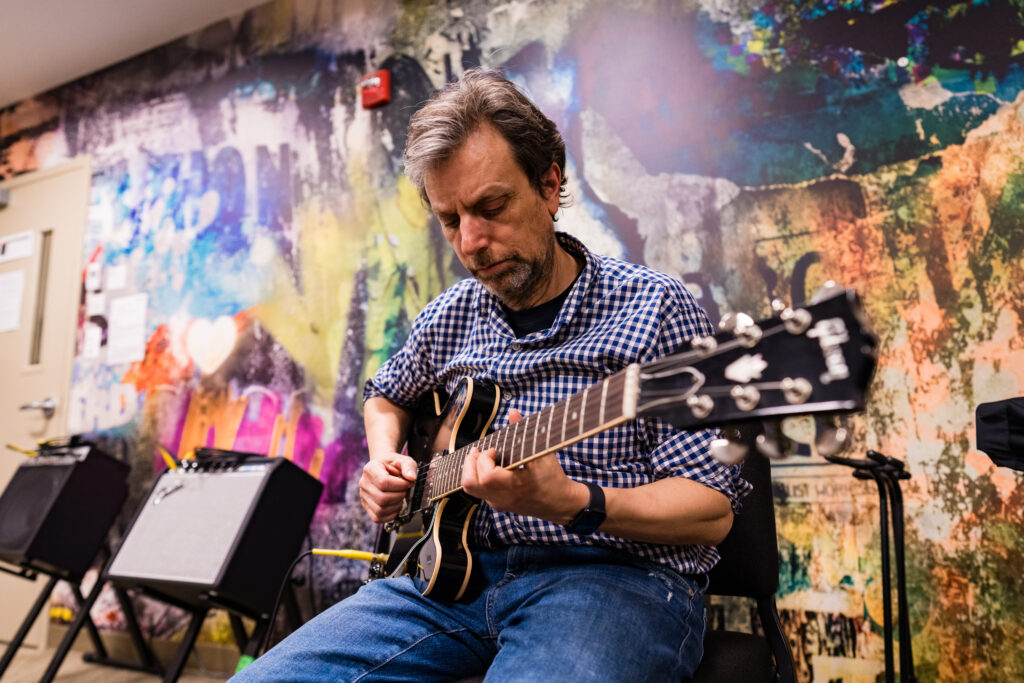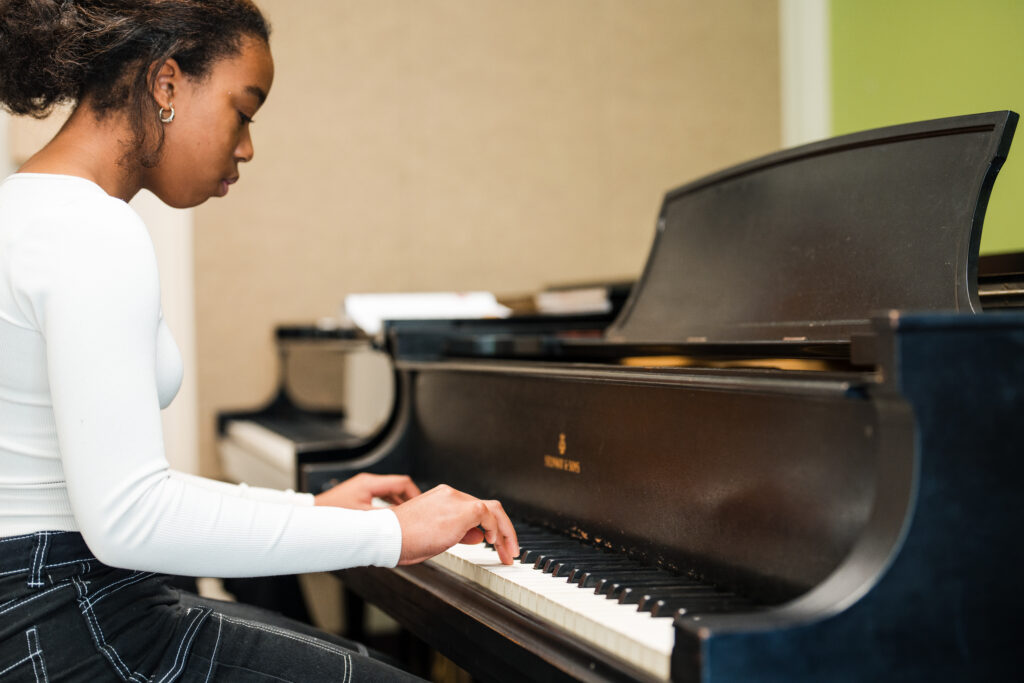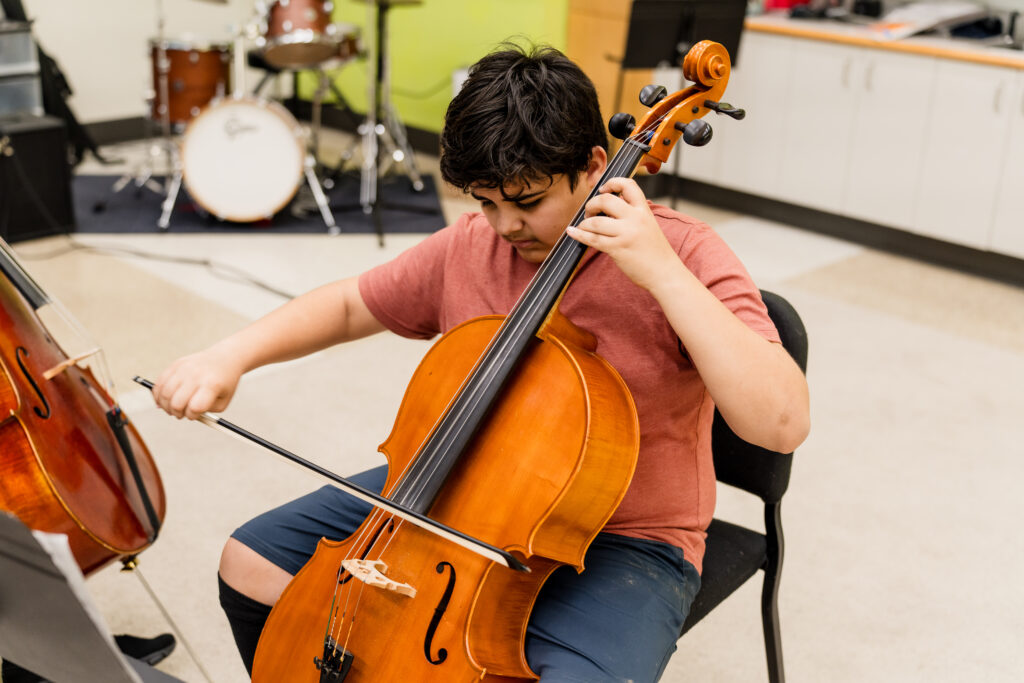When the hurry and chaos of modern life are a bit much, we can turn to mindfulness for moments of solace. An ancient practice rooted in Buddhist tradition, mindfulness has gained widespread popularity for its profound benefits on mental health and overall well-being. At the intersection of mindfulness and the arts, music offers a unique pathway to achieving greater peace, focus, and intentionality in life. Let’s explore the role of mindfulness in mental health, how music can enhance mindfulness practices, and some actionable tips for boosting mindfulness by incorporating music into your daily routine.
What Is Mindfulness?
Mindfulness is the practice of fully engaging in the present moment and being aware of our thoughts and feelings without interpretation or judgment. It involves consciously directing our awareness to the present experience and cultivating active, open attention to the now. Mindfulness is often practiced through meditation, but it’s a quality that can be brought to any activity or art.
Benefits of Mindfulness
The mental health benefits of mindfulness are well-documented. Regular mindfulness practice has been shown to reduce stress, anxiety, and depression. It also improves attention, concentration, and the ability to manage emotions. By fostering a greater awareness of the present, mindfulness helps break the cycle of negative thought patterns, leading to improved mental health and increased resilience.
Music and Mindfulness
Music presents a powerful medium for practicing mindfulness. With its rich, emotive qualities and capacity to fully engage our senses, playing an instrument, in particular, can be an intensely mindful activity. It requires focus, concentration, and a deep connection to the present moment—all core components of mindfulness.

Practicing With Intention
When we approach music practice with intention, we transform a routine activity into a mindful one. Intentional practice means fully engaging in the process, paying attention to each note, the feel of the instrument, and the emotions the music evokes. This style of practice improves musical skills and enhances mindfulness, creating a feedback loop that builds your musical and mindfulness skills simultaneously.
Here are some of the best strategies for practicing music mindfully:
- Set clear intentions: Students should set specific goals before starting a practice session. An intention could involve mastering a particular passage, improving timing, or refining dynamics. Having a clear purpose helps focus the mind and efforts.
- Practice slow: Slowing down the music allows students to pay close attention to each note, their technique, and the sound they produce. This deliberate practice helps build muscle memory and understand the piece at a deeper level.
- Focus your attention: Students should practice focusing on different aspects of their performance, such as breathing, posture, or the sensations of their fingers on the instrument. This helps maintain presence and reduces the likelihood of mind wandering.
- Listen mindfully: Listening is as essential as playing. Students should spend time listening to their own playing as well as recordings of others. Mindful listening can teach, inspire, and provide insights into different interpretative approaches.
- Take regular breaks: Incorporating short, regular breaks during practice sessions helps maintain mental clarity and focus. It prevents burnout and keeps the mind refreshed.
- Allow time for reflection: After practicing, it’s beneficial to spend a few minutes reflecting on the session. What went well? What could be improved? This reflection helps set goals for the next session and makes practice more purposeful.
- Practice body awareness: Being aware of the body’s posture and movements during practice can prevent physical strain and promote more efficient technique. Mindfulness can help students become aware of any unnecessary tension in their bodies and adjust to improve performance.

Boosting Daily Mindfulness with Music
Incorporating music into your daily routine — through practicing music or otherwise — can significantly enhance your mindfulness practice. Here are some tips to get you started:
- Begin your day with music: Start your day by listening to calm, soothing music. Focus on the melodies, instruments, and any emotions or thoughts that arise to set a mindful tone for the day ahead. It can also be beneficial to start your morning with music practice, energizing your day, enhancing cognitive function, and establishing a focused, productive mindset by leveraging the calm and quiet of the early hours.
- Practice mindfully: If you play an instrument, dedicate a portion of your practice time to mindful playing. Focus solely on the present moment, the sound of the music, and the sensation of the instrument in your hands.
- Listen actively: Engage in active listening sessions where you listen to a piece of music with full attention. Use headphones, close your eyes, and let the music fully absorb you. Notice the intricate details, the rise and fall of the melodies, and how the music makes you feel.
- Sing: Singing, even if only to yourself, can be a powerful, mindful activity. Pay attention to the sound of your voice, the lyrics, and the act of breathing as you sing.
- Meditate with music: Combine music with meditation by using music as a focus point. Instrumental music works best for this. Let the music guide your attention, and when your mind wanders, gently bring it back to the sounds.
- Explore new music: Regularly introducing new music into your life encourages curiosity and a beginner’s mind, both key aspects of mindfulness.

Enhance Mindfulness with Music Education
Music education is not just about learning to play an instrument; it’s about deepening your connection to music, which can significantly enhance your mindfulness practice. Music lessons provide structured guidance on how to engage with music intentionally, offering techniques and practices that can deepen your understanding of music and its impact on the mind and emotions.
Here at Levine Music, we believe in the power of music to transform lives. Our music lessons will skillfully impart the technical aspects of music — and can also help you foster a deep, mindful connection to the art. Whether you’re a beginner or an experienced musician, we provide a supportive, enriching environment to explore music and mindfulness together. Check out our areas of study today!
Music and mindfulness are profoundly interconnected, with each enhancing the practice of the other. By incorporating music into your daily routine in a mindful way, you can experience the myriad benefits of mindfulness more deeply. Whether through playing an instrument, listening attentively, or engaging in music education, music offers a path to greater intentionality in life. Explore the transformative power of music with us at Levine and embark on a journey of mindfulness that resonates with every note.
At Levine Music, our core values — excellence and opportunity — infuse everything we do. Learn more about our program areas and upcoming performances, and donate today to help us bring lifelong joy and inspiration through music!
